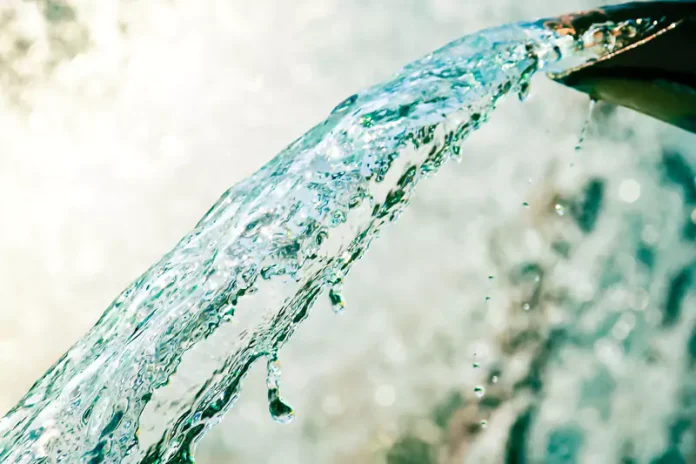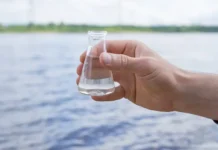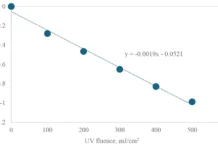By Patricia Sinicropi, executive director, WateReuse Association
Across the United States, many communities are facing extreme weather conditions. In the west, an historic drought on the Colorado River is driving a renewed focus on alternative water supplies. Meanwhile, NOAA weather data shows a steady increase in extreme single-day rainstorms in the lower 48 states, especially along the east coast and in the Midwest. Dry weather can cause water scarcity and increase the cost of drinking water; meanwhile, heavy precipitation can overload an aging infrastructure and cause flooding, damage and pollution. These unprecedented times also help explain why water reuse has taken the spotlight. Water reuse is a multi-benefit solution that can address challenges with water supply and quality, environmental protection and more. The achievements of the water reuse community in 2022 are setting the stage for even more advances in 2023.
In 2022, the United States Environmental Protection Agency announced a new federal Water Reuse Interagency Working Group to help advance the Water Reuse Action Plan in communities across the country. The federal government also began distributing $1 billion in water reuse funding under the Infrastructure Investment and Jobs Act of 2021. This is an historic investment for water recycling, which until last year had received only about $65 million per year in federal funding through the Bureau of Reclamation. To celebrate this success, Tanya Trujillo, Assistant Secretary for Water and Science in the Department of the Interior traveled to El Paso Water in September 2022. In El Paso, the new federal funding will help construct a brand-new Advanced Water Purification Facility, which will produce up to 10 million gallons of water per day using the latest purification technologies, including ultraviolet disinfection with advanced oxidation, which successfully was tested during the pilot phase of the project. Trujillo also announced funding for 24 other critical water reuse projects, many of which will use ultraviolet technology for disinfection.
This year, water reuse leaders also advanced potable reuse rulemaking in collaboration with state regulators. Potable reuse regulations can protect public safety while encouraging the implementation of proven water reuse technologies. In July 2022, Arizona utility leaders held a special interactive workshop with state regulators during the WateReuse Arizona Symposium. The workshop set a course for Direct Potable Reuse rulemaking in Arizona. A few months later, the Colorado Water Quality Control Commission unanimously gave preliminary approval to Colorado Department of Public Health and Environment’s proposed Direct Potable Reuse regulations. Pending final approval and implementation, Colorado would be the first state in the US with Direct Potable Reuse regulations.
In a milestone for international exchange, the WateReuse Association also led a successful delegation in November 2022 to learn about Israel’s water recycling program in collaboration with the US Environmental Protection Agency, the US State Department and the State of Israel. Nearly 40 WateReuse members, representing utilities, businesses, regulators and research institutions, traveled from a dozen states to visit Israel’s largest water treatment and desalination plants, research centers and industrial facilities, bringing back valuable insights to their communities.
In 2023, it’s clear that the adoption of water reuse will continue to gain momentum. In addition to the continued funding of large water reuse projects in the west, the same tried and tested technologies are being put to use in new applications and new regions.
The 2023 WateReuse Symposium will be held March 5-8 in Atlanta, Georgia. Georgia and the Southwest quickly emerging are as water recycling hotspots. Participants will have the opportunity to tour onsite reuse systems at Georgia Tech and Atlanta’s Piedmont Hospital, explore water reuse innovations and workforce programs at Gwinnett County’s treatment plant and The Water Tower, and much more. Sessions will highlight the unique drivers for water reuse on the East Coast, as well as the proliferation of water reuse applications such as onsite systems, industrial projects, agriculture and more.
The Symposium also will mark the launch of a new Industrial Water Reuse Champion Award. The WateReuse Association, US Chamber of Commerce, Veolia and University of Pennsylvania Water Center have partnered to develop a new award program recognizing top Fortune 1000 companies that incorporate the best-in-class water recycling and reuse programs to improve water stewardship and achieve their water management goals. This award highlights and encourages the increasing importance of industrial water users in adopting water reuse technologies.
Water reuse is an inherently collaborative solution. It requires collaboration between drinking water and wastewater agencies, between local agencies and regulators, and between the public and private sectors. The water reuse community is unified by common values and a mutual passion for creating the infrastructure of tomorrow. And water reuse continues to grow in new regions, new technologies and new projects. 2023 will be a marquee year for water reuse – we hope you’ll be a part of it!
Patricia Sinicropi, JD, is the executive director of the WateReuse Association, the nation’s only trade association solely dedicated to advancing laws, policy, funding and public acceptance of recycled water. Sinicropi has over two decades of experience as a policy expert and advocate on water-related issues in Washington, DC. Prior to joining the WateReuse Association, she served as senior legislative director for the National Association of Clean Water Agencies (NACWA) and as legislative counsel to the Water Environment Federation (WEF). Prior to joining WEF, she represented the Rural Community Assistance Partnership (RCAP), an organization providing technical assistance to small, rural communities on drinking water and wastewater infrastructure needs. She also served in the Clinton Administration as deputy director at the President’s Council on Sustainable Development for the National Town Meeting on Sustainable America and as special advisor on Livable Communities to Deputy Secretary of the U.S. Department of Agriculture. For more information, visit www.watereuse.org.





